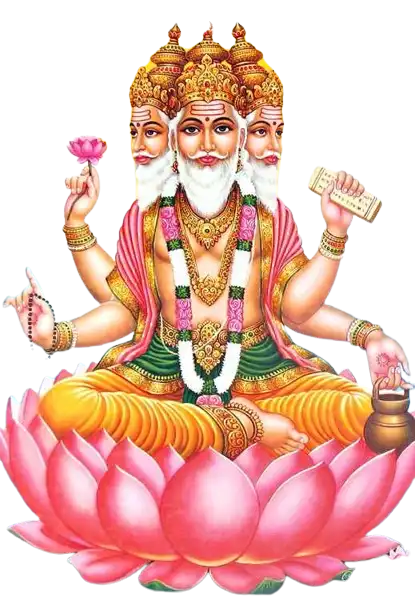1. The Philosophical Underpinnings of "Aham Brahmasmi"
At the core of "Aham Brahmasmi" is the understanding that the true nature of the self (Atman) is not limited to the confines of individual identity but is, in essence, Brahman — the boundless, all-encompassing reality. This realization challenges the perception of separation between the self and the universe, inviting a profound reconnection with all existence.
Advaita Vedanta, as expounded by the sage Adi Shankaracharya, interprets "Aham Brahmasmi" as a declaration of the non-dual nature of reality. It posits that the distinctions between the individual, the world, and the divine are illusions (Maya), obscuring the singular truth of Brahman.
The Upanishads, through dialogues and teachings, repeatedly emphasize the unity of Atman and Brahman. "Aham Brahmasmi" emerges as a direct experiential realization, accessible to those who transcend the limitations of ego and ignorance.
2. The Transformative Impact of "Aham Brahmasmi"
Understanding and internalizing "Aham Brahmasmi" leads to the dissolution of the ego (Ahamkara), freeing the individual from the chains of personal identity, desires, and fears. It reveals the illusory nature of the ego-driven life, opening the door to true freedom.
Realizing "Aham Brahmasmi" transforms one's engagement with the world. Actions become offerings to the divine, performed with non-attachment and equanimity, embodying the principles of Karma Yoga.
The recognition of oneself in all beings fosters deep compassion and love. "Aham Brahmasmi" breaks down the barriers of separation, engendering a sense of universal responsibility and unconditional love.
"Aham Brahmasmi" is not merely an intellectual understanding but a state of being that embodies liberation (Moksha) from the cycle of birth and death (Samsara). It represents the culmination of the spiritual journey, where the individual soul realizes its oneness with the eternal.
3. FAQs on "Aham Brahmasmi"
Realization comes through sustained spiritual practice, including meditation, self-inquiry (Atma Vichara), devotion (Bhakti), and the guidance of a realized teacher (Guru). Scriptural study and contemplation are also vital.
Absolutely. The realization of "Aham Brahmasmi" deeply influences one's perceptions, actions, and interactions, promoting a life of integrity, compassion, and wisdom.
On the contrary, it empowers one to engage with the world more meaningfully, acting selflessly and contributing to the welfare of all, grounded in the knowledge of the self's true nature.
4. Online Resources for Further Exploration
- The Brihadaranyaka Upanishad: The primary source of the "Aham Brahmasmi" Mahavakya, offering rich philosophical insights.
- Commentaries by Adi Shankaracharya: Provides a foundational understanding of Advaita Vedanta and the interpretation of "Aham Brahmasmi."
- Contemporary Teachings on Non-Duality: Modern spiritual teachers and texts that elucidate the principles of non-duality in accessible language.
5. Conclusion
"Aham Brahmasmi" is more than a philosophical statement; it is a call to awaken to the deepest truth of our existence. It invites a journey of self-discovery, challenging and ultimately dissolving the boundaries of individual identity to reveal the infinite and eternal nature of the self. In embracing "Aham Brahmasmi," one embarks on a transformative path that leads not only to personal liberation but to a life of profound meaning, compassion, and unity with all. Through dedicated practice, contemplation, and the grace of realization, the timeless wisdom of "Aham Brahmasmi" continues to illuminate the hearts and minds of seekers, guiding humanity toward its highest potential.
6. Must Watch

